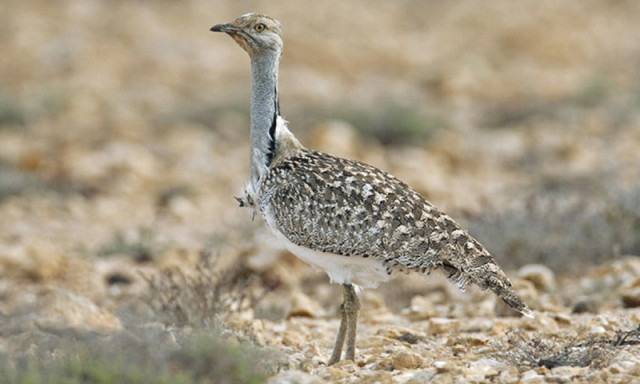Call for measures to protect bustard species
The decline of bustard populations is a clear indicator of the health of our ecosystems.

Various bustard species are facing severe threats due to hunting, poaching, habitat degradation, and shifting climate patterns. Experts emphasised that preserving these vulnerable bird populations requires coordinated global efforts and strategic planning to halt their decline.
These views were shared during a workshop on the Multi-Species Action Plan (MsAP) for the conservation of bustard species worldwide, held at a local hotel in Islamabad on Monday.
This event was organised by the World Wide Fund for Nature-Pakistan (WWF-Pakistan) in coordination with Bustards Without Borders (BWB). The Swiss Ornithological Institute supported the event through the Coordination Unit of the African-Eurasian Migratory Land Birds Action Plan (AEMLAP).
Member (Coordination) Pakistan Climate Change Authority (PCCA) Syed Ghulam Qadir Shah, and the chief guest at the event, remarked that bustards hold a unique place among the numerous species that make up this complex web of life.
The decline of bustard populations is a clear indicator of the health of our ecosystems. Their presence signifies a well-functioning environment where the balance of flora and fauna is maintained. "By working to conserve bustards, we are not just saving a species, but we are safeguarding the ecosystems they inhabit and the biodiversity that supports all life, including our own", he added.
IUCN Bustards Specialist Group's Co-Chair, Dr Mimi Kessler, said that bustard populations are declining across much of their range. This underlines both the urgency and the complexity of our shared task.



















COMMENTS
Comments are moderated and generally will be posted if they are on-topic and not abusive.
For more information, please see our Comments FAQ